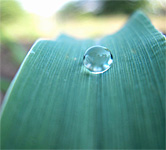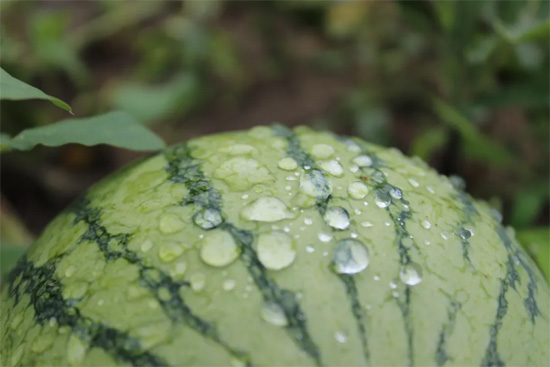Does dew provide water to plants?
 By the American Society of Agronomy
By the American Society of Agronomy
and
Crop Science Society of America
Plant life in drier regions rely on an unsuspecting water source: dew.
One of the prettiest sights first thing in the morning is finding dew droplets on surrounding greenery. During cool nights, water from the air precipitates on plant leaves. Dew is not only aesthetic but is considered an important source of moisture and water for plant life. The August 8, 2022, post on Sustainable, Secure Food Blog explains how dew is an essential source for plants, especially in arid and semi-arid regions.
According to blogger Udayakumar Sekaran, most arid and semi-arid regions are under dry conditions for half of the year. Dew is a major water source because dew forms more frequently than rain events. Dew helps plants to accelerate their metabolism and increase plant biomass. Dew also plays an essential role in regulating the inner water of plants and helps them activate photosynthesis rapidly.
 To help conserve moisture, plants in drier regions close their stomatal openings in the middle of the day. However, in these regions, early mornings are the maximum plant growth period because dew drops surround the leaves of the plants and trigger photosynthetic activity.
To help conserve moisture, plants in drier regions close their stomatal openings in the middle of the day. However, in these regions, early mornings are the maximum plant growth period because dew drops surround the leaves of the plants and trigger photosynthetic activity.
“In some context, dew also plays an indirect role in plant health by improving soil moisture condition. Dewdrops on the soil surface decrease soil evaporation loss and mitigate soil water tension,” says Sekaran.
Dew ultimately helps species survive drought conditions by reducing water stress and transpiration.
The Sustainable, Secure Food Blog blog is sponsored and written by members of the American Society of Agronomy (ASA) and Crop Science Society of America (CSSA). Members are researchers and trained, certified professionals in the areas of growing the world’s food supply while protecting the environment. They work at universities, government research facilities, and private businesses across the U.S. and around the world.
(Photos courtesy of Udayakumar Sekaran)






